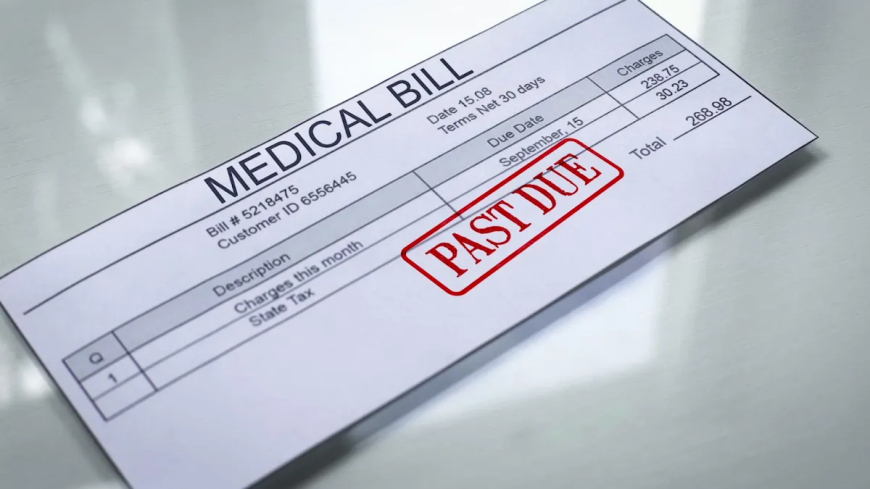Federal Judge Blocks Medical Debt Reform, Hitting Black Credit Scores Hard
A Trump-appointed judge just killed a rule that would've erased billions in medical debt from credit reports—setting back Black families already buried under financial pressure. Here's what this ruling means for your money and our future

Relevance to Black Community: High Impact
This ruling strikes directly at a key driver of economic inequality, disproportionately harming Black Americans already burdened by medical debt and systemic financial barriers.
Justice Denied: A Major Setback for Financial Equity
In a move that hits the wallets and credit scores of millions—particularly Black families—a federal judge has reversed a Consumer Financial Protection Bureau (CFPB) rule that would have wiped medical debt from consumer credit reports. The decision, handed down by U.S. District Judge Sean Jordan in Texas, halts what many considered a pivotal step toward dismantling one of the most unjust forms of financial discrimination.
The blocked rule would have barred lenders from using medical debt in credit decisions, eliminated medical devices as collateral, and boosted credit scores for roughly 15 million Americans. For many Black households, it offered a glimmer of relief from the deep debt trenches carved out by unequal access to healthcare and economic opportunity.
How We Got Here
The CFPB rule, announced in 2022 under the Biden administration, was designed to remove paid and low-balance medical debts from credit reports entirely. With $49 billion in medical debt haunting credit files across the country, the policy was a long-overdue correction to a system that penalized people simply for getting sick.
But Judge Jordan, a Trump appointee, ruled that the CFPB had overreached its authority under the Fair Credit Reporting Act. His decision dismantles the rule entirely—siding with industry groups and lenders who argued that medical debt still provides “useful” credit risk information.
Translation? The courts are siding with banks over Black lives and economic justice.
The Black Cost of Medical Debt
Let’s be clear: this decision is not race-neutral. Nearly 28% of Black adults carry medical debt, compared to just 17% of white adults. That gap isn't just about money—it's about a healthcare system riddled with discrimination and a financial system rigged to punish the poor for being sick.
For Black families who already face higher interest rates, lower loan approvals, and wage gaps, the presence of medical debt on credit reports compounds injustice. It's not just a bill—it's a barrier to homeownership, entrepreneurship, and stability.
This ruling slams that barrier back in place.
What Remains—and What You Can Do
Despite the court’s ruling, the three major credit bureaus—Equifax, Experian, and TransUnion—have voluntarily removed paid medical debts and those under $500 from reports. But the bigger protections and permanent bans? Off the table—unless the CFPB successfully appeals or Congress steps in to rewrite the law.
Here's what you should do now:
-
Check your credit report for outdated or incorrect medical debt. Errors are rampant.
-
Dispute any debts that were paid or under $500—they may still be showing up.
-
Pressure local and state leaders—some states are passing their own laws to shield residents from medical debt damage.
What’s Next: A Fork in the Road
This ruling marks a pivotal moment in the struggle for economic justice. Will Congress codify protections that courts just stripped away? Will state governments rise up to shield their citizens? Or will the same system that created the debt crisis continue unchecked?
One thing is clear: Black Americans can’t afford silence on this issue. We are owed more than the right to survive a hospital visit—we deserve the right to thrive afterward.
If this nation can’t even protect us from being punished for getting sick, then we have to protect ourselves—with knowledge, advocacy, and unshakable community.
Stay vigilant. Stay vocal. Your credit—and your freedom—depend on it.
What's Your Reaction?
 Like
0
Like
0
 Dislike
0
Dislike
0
 Love
0
Love
0
 Funny
0
Funny
0
 Angry
0
Angry
0
 Sad
0
Sad
0
 Wow
0
Wow
0





